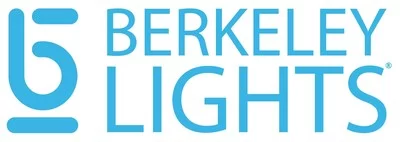 |
The new multiplex cytokine and cytotoxicity assays as a part of the Opto Cell Therapy Development 1.0 workflow will help users of the Berkeley Lights’ platform develop cancer immunotherapies faster
EMERYVILLE, Calif., April 28, 2020 /PRNewswire/ — Today, Berkeley Lights, Inc., a leader in Digital Cell Biology, launched new capabilities to empower the Opto Cell Therapy Development 1.0 workflow. The workflow consists of a collection of software capabilities, reagents, and protocols to be run on the Beacon® and LightningTM systems. With the new capabilities researchers can now perform multiple functional assays on thousands of individual T cells in just days, allowing them to recover live cells for downstream genomic analysis. This ultimately enables Berkeley Lights’ customers to link T cell phenotype and function to genotype on individual cells, consolidating the T cell functional analytic process into one innovative platform.
T cell-based therapies have shown great promise for cancer treatment, but developing these therapies is challenging because the process of killing cancerous tumors by T cells relies on studying and screening multiple cell-to-cell interactions—a time-consuming and complex procedure. Current techniques to assess T cell function don’t allow scientists to collect all of the required data from the same cell. The new multiplex cytokine assay and the cytotoxicity assay, along with the recently launched TCRseq Well Plate Kit allow scientists to define and test the function of individual T cells. These applications enable simultaneous functional interrogation of thousands of individual T cells as they interact with antigen-presenting cells or tumors. Live, individual clones can be recovered for downstream expansion or genomic analysis. The Opto Cell Therapy Development 1.0 workflow enables CAR-T cell phenotypic and functional screening, and the discovery of T cell receptors (TCRs) associated with specific T cell behaviors.
“With the Opto Cell Therapy Development 1.0 workflow, users of Berkeley Lights’ platform can now tailor the development of cell therapies that mediate the rapid destruction of multiple tumor cells to the few T cells that really do all the work,” said John Proctor, Ph.D., Senior Vice President of Marketing at Berkeley Lights. “The cytotoxicity assay visualizes killing activity from single T cells, such as multiplexed and serial killing, followed by live cell recovery for genomic analysis. This new assay avoids common problems associated with traditional killing assays, which measure average target cell lysis at fixed time points, obscuring kinetic details and ignoring the heterogeneity present in T cell subsets.”
Berkeley Lights will continue to release more cell therapy related capabilities to the Berkeley Lights platform in the coming months. Email [email protected] for more info.
About Berkeley Lights
Here at Berkeley Lights, we think cells are awesome! Cells are capable of manufacturing cures for diseases, fibers for clothing, energy in the form of biofuels, and food proteins for nutrition. So the question is, if nature is capable of manufacturing the products we need in a scalable way, why aren’t we doing more of this? Well, the answer is that with the solutions available today, it is hard. It takes a long time to find the right cell for a specific job, costs lots of money, and if you have picked a suboptimal cell line, has a very low process yield. The Berkeley Lights Platform delivers and links deep phenotypic, functional, and genotypic information at the single cell level. This is a new way to capture and interpret the qualitative language of biology and translate it into single cell specific digital information, which we call Digital Cell Biology. Using our platform, customers have the complete solution to find the best cells by functionally screening and recovering individual cells for antibody discovery, cell line development, cell therapy development, and synthetic biology. Using our systems and solutions, scientists can find the best cells, the first time they look. For more information, visit www.berkeleylights.com.
Berkeley Lights’ Beacon and Lightning systems and Culture Station instrument are for research use only. Not for use in diagnostic procedures.
Source: Berkeley Lights, Inc.






